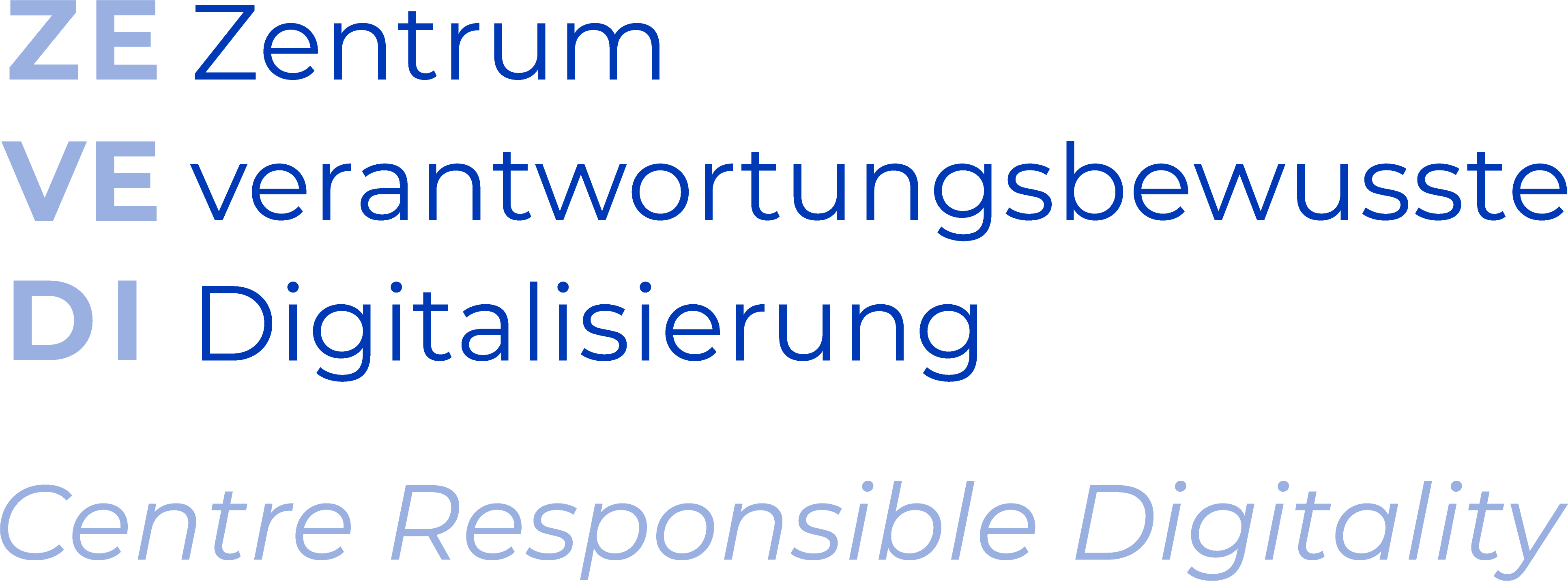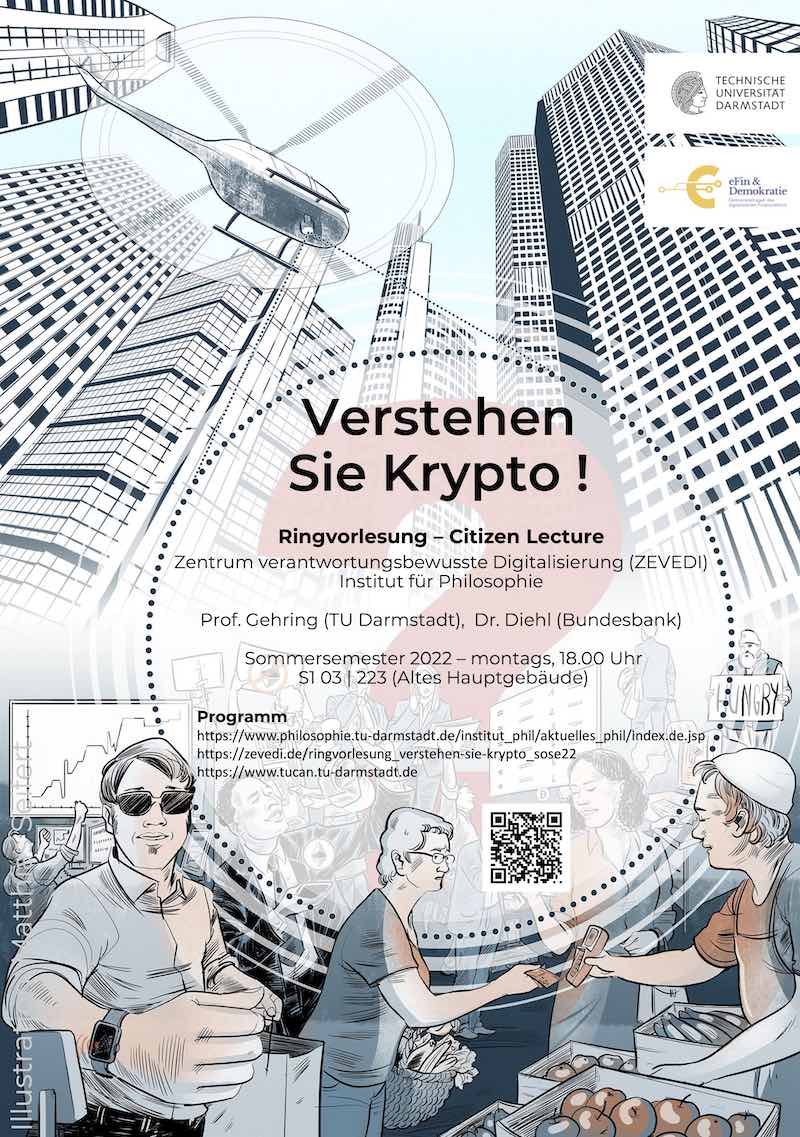eFin & Democracy: Citizen Lecture
Summer Semester 2022, Technische Universität Darmstadt
The digital transformation of the financial sector is in full swing, but the associated upheavals for democracy and the future society are not yet publicly tangible. Specialists know their way around – but mainly in individual segments. Impetus is needed to open up a space for discourse that shows relevance. Civil society participation and co-design, indeed only positioning and broader public discussion, require understanding and interdisciplinary exchange. Against this background, we have asked experts to create a knowledge base and to open the discussion.
The lecture series is offered at the Institute of Philosophy of the TU Darmstadt, addresses interdisciplinary registered listeners, but is also intended to be accessible to an interested general public. The sessions will be introduced and moderated by the organizers.
Mondays at 18:00 CEST
Hörsaal S1 03 | 223 (Altes Hauptgebäude) TU Darmstadt
Please send inquiries about the event via e-mail to efin[at]zevedi.de.
video recordingsBig questions are:
- How is digitisation transforming payments methods and the financial sector?
- What are blockchain, fintech, cryptocurrencies, decentralised financial applications and co. anyway?
- Which new players define a “digitised” financial world and how would they be sub-jected to state regulation?
- How are sovereign tasks in the financial sector changing and what will become of the currency – specifically the euro – in European democracy?
- How can democracies react when the financial world changes as profoundly as it is currently doing?
- What opportunities are there for citizens to participate in the digital transformation of the financial sector?
Programme
| 11 April | Dr. Martin Diehl (Deutsche Bundesbank) & Prof. Dr. Petra Gehring (TU Darmstadt) Das soziale und semiotische Konstrukt „Geld“. Zur Einführung in die Vorlesung |
| 25 April | Claus George (DZ BANK) Digitalzahlungen – gestern, heute, morgen |
| 2 May | Prof. Dr. Sebastian Omlor, LL.M. (NYU), LL.M. Eur. (Universität Marburg) Demokratische Blockchain-Algorithmen: von ‘Code is Law’ zu ‘Law in Code’? |
| 9 May | Mario Oettler (Hochschule Mittweida) Wie dezentral sind sog. dezentrale Finanzanwendungen („DeFi“)? |
| 23 May | Jens Hachmeister (Deutsche Börse) Digitale Finanzdienstleistungen – Was sind Fintechs? |
| 30 May | Prof. Hans-Gert Penzel (Universität Regensburg) Bezahlen mit Daten |
| 13 June | Kolja Reichert (Bundeskunsthalle) Kulturalisierung des Geldes, Finanzialisierung der Kultur. Was NFTs für die Kunst bedeuten |
| 20 June | Prof. Dr. Monika Dommann (Universität Zürich) Wie BTC und ETH in Zug landeten. Konzeptuelle Überlegungen zur historischen und ethnographischen Erforschung von Cryptocurrencies |
| 27 June | Prof. Dr. André Alfes (Hochschule Deutsche Bundesbank) Wem gehört mein Geld? Über „meins“ und „deins“ in der virtuellen Welt |
| 4 July | Katharina Gehra (Immutable Insight) Warum hat der Digitalfinanzmarkt neue Chancen jenseits der traditionellen Bankingrollen? |
| 11 July | Dr. Martin Diehl (Deutsche Bundesbank) Zentralbanken zwischen strategischer Relevanz, politischer Unabhängigkeit und demokratischer Kontrolle |
| 18 July | Podiumsdiskussion Der digitale Euro: Pro und Contra mit Katharina Paust-Bokrezion (Deutsche Bank – Political Affairs) und Marcus Henrik Härtel (Europäische Zentralbank) |

